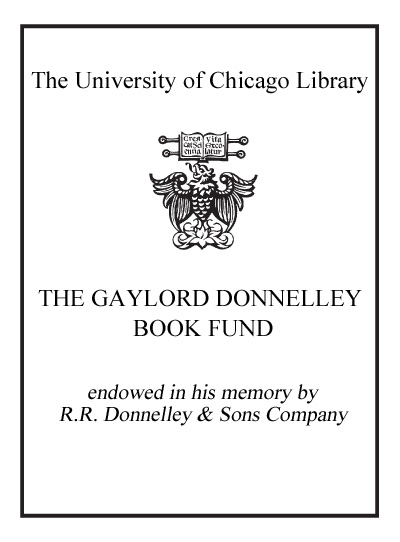Economic pluralism /
Saved in:
| Imprint: | Abingdon, Oxon ; New York, NY : Routledge, c2009. |
|---|---|
| Description: | xxi, 302 p. : ill. ; 25 cm. |
| Language: | English |
| Series: | Routledge frontiers of political economy ; 122 |
| Subject: | |
| Format: | E-Resource Print Book |
| URL for this record: | http://pi.lib.uchicago.edu/1001/cat/bib/7884705 |
Table of Contents:
- Notes on contributors
- Acknowledgments
- Economic pluralism for the twenty-first century
- Part I. Pluralism and economic inquiry
- Pluralism and heterodoxy
- 1. Pluralism in heterodox economics
- 2. Moving beyond the rhetoric of pluralism: suggestions for an "inside-the-mainstream" heterodoxy
- 3. Is convergence among heterodox schools possible, meaningful, or desirable?
- 4. Raising dissonant voices: pluralism and economic heterodoxy
- Theorizing pluralism
- 5. Is Kuhnean incommensurability a good basis for pluralism in economics?
- 6. Why should I adopt pluralism?
- 7. Ontology, modern economics, and pluralism
- 8. The Cambridge School and pluralism
- Part II. Pluralism and real-world economies
- Economic democracy and the common good
- 9. America beyond capitalism: the Pluralist Commonwealth
- 10. From competition and greed to equitable cooperation: what does a pluralist economics have to offer?
- 11. Growth, development, and quality of life: a pluralist approach
- 12. Beyond the status quo, in the world and in the discipline: the comments of an Austrian economist
- Economic cooperation: commercial and communal
- 13. Hayek and Lefebvre on market space and extra-catallactic relationships
- 14. The plural economy of gifts and markets
- 15. Communities and local exchange networks: an Aristotelian view
- Part III. Pluralism and economics education
- 16. Promoting a pluralist agenda in undergraduate economics education
- 17. The illusion of objectivity: implications for teaching economics
- 18. A pluralist teaching of economics: why and how
- 19. Economic pluralism and skill formation: adding value to students, economies, and societies
- 20. A most peculiar success: constructing UADPhilEcon, a doctoral program in economics at the University of Athens
- Index

